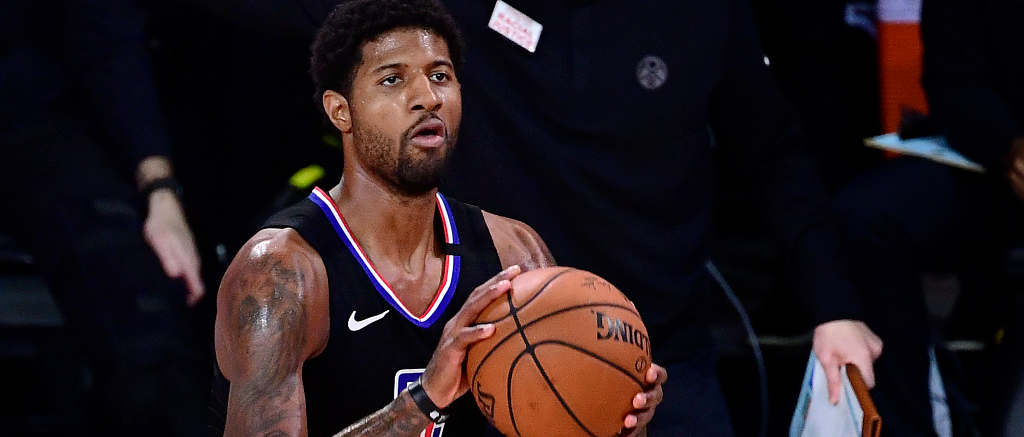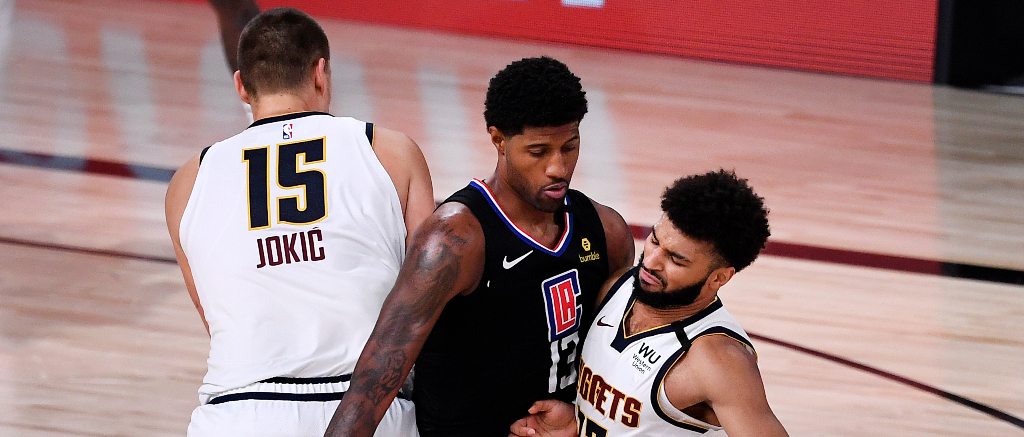
There are a lot of perks to being an NBA superstar. Kawhi Leonard, for instance, has been one of the pioneering figures of a cutting-edge load management philosophy that has allowed him to strategically rest his body throughout the regular season in order to minimize the risk of injury and be as healthy as possible for deep postseason runs.
That wouldn’t be possible without the full consent and cooperation of both the coaching staff and the front office, nor would it work without wholesale buy-in from his teammates, who are put in the awkward position of being subjected to unequal treatment. It’s not the type of luxury that’s afforded to any old player — you need a resume/CV that warrants that level of accommodation and what’s more, points directly to its efficacy.
Fresh off of winning a title and being named Finals MVP with the Toronto Raptors, Kawhi had amassed the capital necessary to negotiate that type of arrangement when he joined the Los Angeles Clippers. And he didn’t stop there: He also had the leverage necessary to orchestrate the trade that brought Paul George in as his running mate, which he’d outlined as a precondition to his signing there.
The notoriously soft-spoken Kawhi had exercised a colossal amount of power and influence, setting up the Clippers to contend and dramatically altering the landscape of the Western Conference … on paper, at least. Much of that hinges on the premise that George is of the same or similar ilk, that his pairing with Kawhi is on par with that of the other elite duo in the same building, LeBron James and Anthony Davis.
But what’s become increasingly and painfully clear for Clippers fans is that George appears to be on a different plane than Kawhi. That doesn’t mean Kawhi is above reproach. To be clear, Kawhi was as culpable as anyone for the Clippers’ epic collapse in Orlando. He uncharacteristically wilted in the worst possible moments against the Denver Nuggets as they watched a 3-1 series lead evaporate, appearing disengaged in the deciding Game 7 en route to an abysmal 6-for-22 stat line.
Still, it was George’s sustained struggles throughout the playoffs that were far more prominent. George’s slump was easily one of the worst stretches of his career. There were points when it was historically bad. His three-game skid during the Mavs series — 11.3 points in 38.1 minutes a night while shooting 21.3 percent from the field and 16 percent from three — was nowhere near what you expect out of an All-Star. Yet given the unprecedented circumstances, you could chalk it up as an anomaly. George himself has admitted that, like so many Americans during the pandemic, he was battling mental health issues brought on by isolation and malaise.
The problem is that George has been forced to do a lot of answering for his play the past few seasons. And time and time again, he comes armed with an explanation, whether it’s a comically-oversize ice-pack to remind us about his troubled shoulder, his opponent making a “bad shot,” or in his most recent example, a fundamental mishandling of his talent on the part of his former coach. George joined the All the Smoke podcast this week, during which he complained that Doc Rivers tried to use him last season like he would a Ray Allen or J.J. Redick, i.e. as more of a shooter off of pin-down screens, as opposed to the more free-flowing role that allows him to thrive and properly exploit his skill-set.

As others have pointed out, it’s not an entirely accurate appraisal of what happened last season, but that’s beside the point. Nor is it the first time he’s complained about how he’s been used. George balked at the idea of playing power forward in Indiana, just as the Pacers were attempting to move into the modern era and up the tempo.
The timing of his latest comments couldn’t have been worse. Just as they were gaining traction on social media, a new report claimed that George’s own Clippers teammates were resentful that he received “preferential treatment” last season when it was difficult to point to anything he’d done to earn it. From The Athletic:
But George’s treatment was more of an issue within the locker room, league sources said. George, while a perennial All-Star and All-NBA candidate, didn’t carry the same cachet with his teammates. There was a sentiment among certain teammates of, “What have you accomplished in the playoffs?” multiple league sources said.
It’s a valid point. What has George done to earn superstar treatment? His name often gets lumped in with the NBA’s top-flight talents, but it’s becoming harder and harder to remember the last time George was truly transcendent on the biggest stage. You could reasonably argue that you’d have to go all the way back to his playoff battles against LeBron and the Big 3 Heat during his Pacers heyday.
The memory of those moments fades a little more with each disappointing postseason exit, and the mythical “Playoff P” has begun to seem more and more like precisely that: a myth. George would remind you that he’s battled through serious injuries over the years, one of them nearly career-ending. It’s all true, and admirable. But that would only be half the story. The rest of it is more difficult to reconcile.
What’s evident is that new head coach Tyronn Lue has plenty of work ahead to repair some of the locker room dynamics that were clearly undermining their title hopes, some of which obviously involve George, his relationship to his teammates, and the question of whether he’s being held to the same standard as everyone else. Lue, of course, has plenty of experience managing mercurial superstars and their egos, including a proven ability to demand a certain level of accountability from his top guys, as he did so effectively with LeBron in Cleveland.
The challenge for Lue won’t just be coaxing elite-level production out of George on a regular basis and in the biggest moments. It’ll be getting him to show a willingness to shoulder the responsibility as a team leader, an approach that should have a galvanizing effect on his teammates rather than alienating them. It’ll require a culture shift to remove the perception of imbalance among the ranks.
Even then, it’s debatable whether the Kawhi-George pairing is the elite-level duo they would have us believe it is. The evidence so far hasn’t been very convincing. In fairness to George, he is still a tantalizing talent, capable of moments of pure basketball brilliance that set him apart from 90 percent of his peers, and his Per 36 numbers in the regular season were awfully similar to his numbers during his final season in Oklahoma City. The question is whether he can sustain something that approximates that level of play over the course of a long season and, in particular, a grueling postseason run during he which he and the rest of the Clippers will have a giant target on their backs from their opponents, fans, and the media alike.
The Clippers, of course, have no choice but to proceed under the notion that he is still that player, that together they are in fact capable of toppling the reigning champs, and that last season was somehow an aberration. George’s reputation depends on it, as does the future of the franchise. The weight of those expectations proved heavy last season. It’s now on the entire franchise and George in particular to respond.
